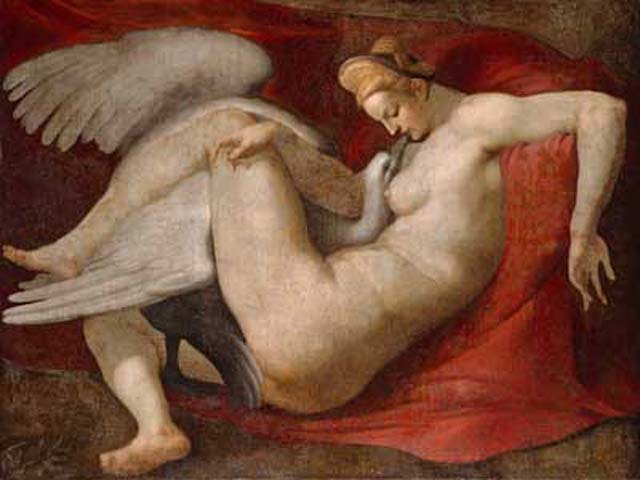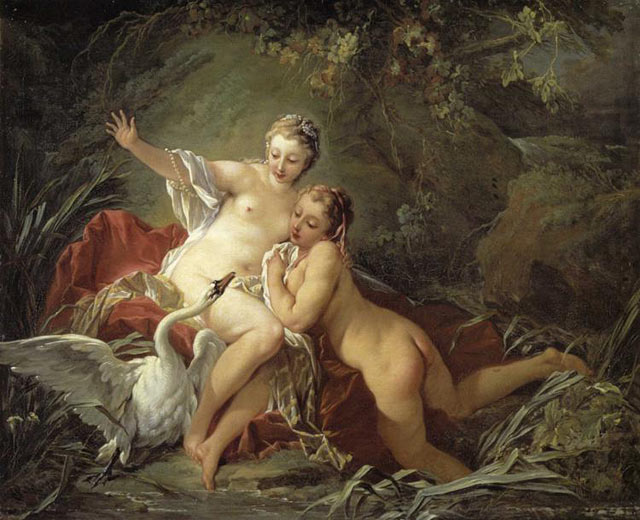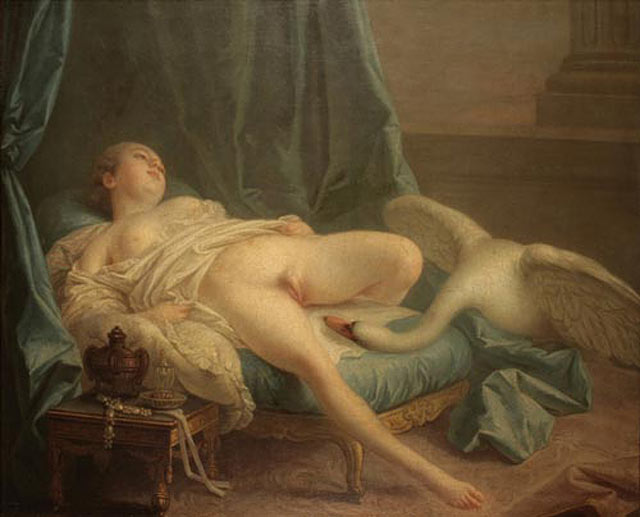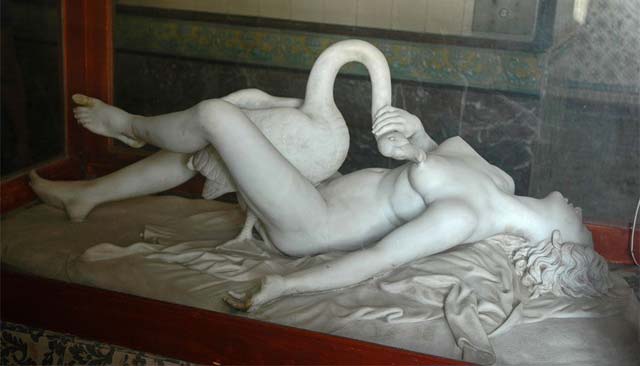‘A great part of courage is the courage of having done the thing before.’ –R. W. Emerson

{ Leda and the Swan, copy after a lost painting by Michelangelo, c. 1530 }

{ François Boucher, Leda and the Swan, 1741-1742 | Read more }

{ François Boucher, Leda and the Swan, c. 1740 }

{ Leda and the Swan, Scindia museum, Gwalior }

{ Leda and the Swan by Norman Parkinson, 1980s }
Leda and the Swan is a motif from Greek mythology, in which Zeus came to Leda in the form of a swan.
The subject undoubtedly owed its sixteenth-century popularity to the paradox that it was considered more acceptable to depict a woman in the act of copulation with a swan than with a man.
Leonardo da Vinci began making studies in 1504 for a painting, apparently never executed, of Leda seated on the ground with her children. In 1508 he painted a different composition of the subject, with a nude standing Leda cuddling the Swan, with the two sets of infant twins, and their huge broken egg-shells.
After something of a hiatus in the 18th and early 19th centuries (apart from a very sensuous Boucher), Leda and the Swan became again a popular motif in the later 19th and 20th centuries, with many Symbolist and Expressionist treatments.
Cy Twombly executed an abstract version of Leda and the Swan in 1962.
{ Wikipedia | Continue reading | Bonus: Doggie style by Fred Inaudi }


